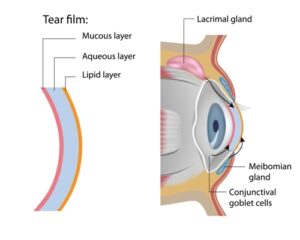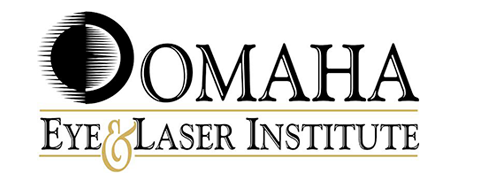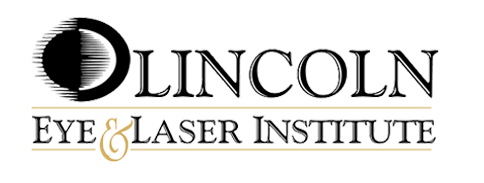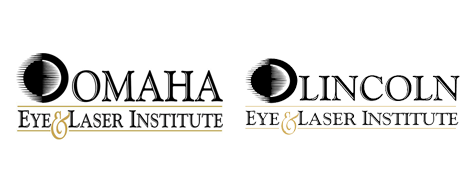Do you suffer from dry, itchy eyes? You’re not alone.
One common and seemingly minor issue many people have with their eyes is dryness. Your eyes can get too dry for several reasons, making them feel like they’re burning, stinging, and gritty.
These symptoms can be uncomfortable, but many people don’t recognize the cause or know how to alleviate them. Luckily, the ophthalmologists at Omaha Eye are very knowledgeable about dry eyes and dry eye syndrome.
If you’re experiencing dry eyes, we can help. Keep reading to discover what your Omaha ophthalmologist wishes you knew about dry eyes!
Dry Eyes Are More Common than Ever

More people experience dry eye symptoms in this increasingly modern world than ever. A significant reason for this is how commonplace electronic devices and digital use have become.
Most people spend a considerable amount of time every day staring at a phone screen or computer screen. These screens emit blue light, which can harm the eye and cause various health issues, including eye strain, fatigue, headaches, and dry eyes.
You can reduce the severity of these symptoms by limiting your screen time and switching to a warm light mode on your phone or computer. You can also follow the 20-20-20 rule if you work on a computer.
The 20-20-20 rule states that you should take a break every twenty minutes to look at an object twenty feet away for twenty seconds. Taking even a short break gives your eyes time to refocus, blink, and take a break, reducing the effects of blue light on your tear production.
The Weather Can Affect Your Eyes

Dry weather can dry out your eyes. You may notice that the air is drier than usual in the winter, but it can also be drier when you’re inside during warmer weather.
If you have your air conditioning blasting, your eyes can take the hit, feeling dry and irritated. Avoid sitting directly under vents like air conditioning. You can also reduce the dryness in your home or workplace with a humidifier. by using a humidifier.
It can also be easy to get dehydrated when it’s sweltering outside. Dehydration can lead to or exacerbate dry eye symptoms.
Be sure to drink plenty of water year-round, and always wear sunglasses when it’s sunny out to keep your eyes feeling comfortable in all seasons.
Nutrition Can Affect Your Tear Production

Your eyes need certain nutrients to stay healthy. When you’re lacking in these nutrients, your eyes can suffer.
Omega-3 fatty acids are essential when it comes to healthy tear production. If you don’t get enough omega-3 fatty acids in your diet, your eyes may not be able to produce enough tears.
You can remedy this by eating more fatty fish, walnuts, and seeds. You can also take certain nutritional supplements like fish oil or flaxseed oil pills. But be sure to talk to your doctor before making any major changes to your diet.
Dry Eye Syndrome May Cause Dry Eyes

Some of the issues mentioned above may cause dry eyes but can also be due to a chronic condition. Dry eye syndrome is a condition that affects your tear production and often needs professional intervention to treat effectively.
Dry eye syndrome is more common in older patients and women, especially women undergoing hormonal changes associated with pregnancy or menopause. Dry eye syndrome can also be related to certain skin conditions like rosacea.
If you have dry eye symptoms that don’t respond to simple environmental changes, you should see an eye doctor for proper diagnosis and treatment as soon as possible.
When Left Untreated, Dry Eye Syndrome Can Lead to Permanent Vision Loss
Treatment is vital when it comes to dry eye syndrome. Not only is dry eye syndrome uncomfortable, but it can also lead to long-term issues with your eyes if left untreated.
Your eyes need moisture to stay healthy. You’re more susceptible to corneal abrasions and infections without proper moisture and lubrication.
A corneal abrasion that becomes infected can become a corneal ulcer, which can, in turn, cause corneal scarring. Corneal scarring permanently damages your cornea and can cause vision loss.
To prevent this chain of events, you should always seek professional treatment when you experience dry eye symptoms that don’t go away independently.
You May Be Able to Treat Dry Eye Syndrome with Simple Remedies

Once your eye doctor has diagnosed you with dry eye syndrome, they’ll usually start by recommending completely non-invasive treatments that you can give yourself. These treatments may include nutritional supplements, over-the-counter artificial tears, and lid hygiene.
Lid hygiene can be beneficial as it can lower eyelid inflammation, which can trigger and exacerbate dry eye syndrome symptoms. But when these home remedies don’t lead to significant improvement, there are further treatments that can be even more effective.
You Can Manage Dry Eye Syndrome with Medications and Non-Invasive In-Office Treatments
When you’re diagnosed with dry eyes, your eye doctor will test your tears to try and determine if you have dry eye syndrome and, if you do, what may be causing it. Some of our professional treatments include prescription eye drops that can reduce inflammation and aid in tear production.
Certain non-surgical therapies can help your eyes better produce the components that make up your tears or help your tears disperse better over the surface of your eyes. But you can only have your dry eye syndrome treated once you receive a diagnosis.
To do that, you need to see an eye care professional. If you have persistent dry eye symptoms, make an appointment at Omaha Eye & Laser Institute in Omaha, NE, so you can see one of our specialists and get the relief you need. If you’re tired of living with the frustrations of dry eyes, it’s time to take charge of your destiny!





